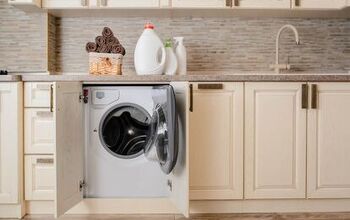Dishwasher Not Spraying Water? (Possible Causes & Fixes)

When you first pop dishes into the dishwasher, you usually expect your dishes to be hit with a large jolt of water. This is followed up by some detergent, some jet-provided scrubbing power, and then a nice drying session. However, if your dishwasher doesn’t spray water well, all your dishwashing hopes will be dashed. What causes this, and how on earth can you fix it?
For the most part, a dishwasher not spraying water is a sign of a water supply issue rather than a dishwasher problem. Some of the more common reasons why you may experience this include:
- Too Many Dishes
- A Spray Arm Blockage
- A Blocked Pump Filter
- A Water Pressure Issue
- A Bad Water Valve
- A Float Switch Problem
Without being able to spray water, your dishwasher is basically DOA. Thankfully, troubleshooting this issue shouldn’t be too hard. This guide will help you make your washer work again, or at least give you a way to diagnose it.
Do You Need Appliance Repair Services?
Get free, zero-commitment quotes from pro contractors near you.

Troubleshooting Your Dishwasher
The very first thing you need to do when you’re trying to fix your dishwasher is to determine what’s causing the problem. To make your troubleshooting goes easily, we’re going to parse it out by fixes in order of easiest to most difficult,
Too Many Dishes
The first issue that you should check for is an excess amount of dishes. Too many dishes, particularly those that are fairly tall in shape, can make it appear that your dishwasher can’t spray water simply because the height of the dishes blocks the water from reaching other items. This is a super simple fix.
To fix this issue, take out a quarter of the dishes in your washer and try to run your dishwasher again. If it was just a crowded washer, you’ll see an improvement as soon as you hit the start button again.
A Blocked Spray Arm
Like with many other parts of your plumbing, your dishwasher’s spray arm can accumulate hard water buildup. If left alone too long, that buildup can cause a blockage. This, in turn, can make it seem like your dishwasher isn’t getting any water.
The best way to get rid of the blockage is to use a toothpick to clear out your spray arms and make sure that your sprayers are able to rotate well. If you need extra help getting rid of the blockage, spritz some vinegar on the sprayers to loosen up the calcification.
On a similar note, you should also check to see if the spray arm shows signs of damage and breakage. In most modern dishwasher models, your dishwasher won’t release water if the spray arm is broken. The fix here is pretty simple: replace your spray arm.
A Clogged Pump Filter
Another common cause of a dishwasher that just can’t spray water involves a blockage in your pump filter. To fix this, pull out your pump filter and see what’s clogging it. More often than not, you will find bits of food and grit that’s covering your filter. Once you remove the food and clear out your filter, put the pump filter back in its rightful place.
If your issue was a clogged pump filter, you should see improvements as soon as you turn your dishwasher on again. If the condition of your washing still doesn’t improve, keep working through the troubleshooter.
A Bad Water Valve
Another common issue that you may be able to diagnose involves the actual water valve that supplies water to your dishwasher. To diagnose this, check the water valve on your wall and make sure it’s turned on. If it is, open the connection to the valve and check to see if there are any clogs or breaks in the valve.
If you find a clog from excess hard water or mold, then you know what’s causing the issue. Otherwise, just reconnect the water valve and keep searching for the problem.
A Float Switch Problem
Float switches are added to dishwashers as a safety measure against flooding. When too much water enters your dishwasher, the switch turns off and prevents any more water from entering. If your float switch has gone bad, it could be reading water that’s there when there’s no water actually spraying in.
There are two main components that you will need to check here: the float and the microchip that reads things. If the microchip is bad, you can use a multitester set at 1 ohm to determine if it’s gone bad. If the actual float is bad, you can usually tell because it’ll show signs of wear and tear.
The good news about a bad float switch is that they’re relatively easy to replace and are also fairly cheap to do so. The bad news is that most people still prefer to hire a repairman to fix it. It’s up to you to decide whether it’s worth the splurge, but we’d advise it nonetheless.
A Water Pressure Issue
Sometimes, the problems that you’re seeing has little to do with your dishwasher and more to do with your home water pressure. If this is the issue, you will need to call a plumber to fix it. However, testing for this problem isn’t going to be too hard.
To test out your water pressure, put a quart-sized pitcher in your sink and turn the faucet on full blast. It should be able to get filled within 9 to 10 seconds. This fill rate suggests that you have a healthy water pressure between 20 to 120 psi. If your quart jug doesn’t fill quickly, then your dishwasher’s problem is a result of a plumbing issue.
If this your water pressure is the problem, then you don’t need to call a repairman. Rather, you should call a plumber to determine why your water pressure is so low. Since this problem can affect other parts of your home, the sooner you call the plumber, the better off you’ll be.
How Bad Is A Dishwasher That Doesn’t Spray Water?
In terms of severity, a dishwasher that can’t spray water is pretty crippling to your ability to use your washer. At this point, your dishwasher is basically a large storage facility for dishes until it gets fixed. We do not suggest trying to wash your dishes with a washer that has this problem.
Thankfully, most of the fixes for a dishwasher that doesn’t spray are fairly simple and affordable. So, you won’t be without your washer for too long. The only time you should really worry is if your issue is caused by a water pressure issue or a more severe blockage at your water supply line. This can be a pricier fix, and it also usually requires a professional hand.
How Much Does It Cost To Fix A Dishwasher That Doesn’t Spray Water?
It all depends on the cause. If it’s a matter of a jammed filter or a clog, you can usually fix it yourself for free. For issues like a broken sprayer arm or a busted float switch, you may need to spend anywhere from $15 to $150 for parts, along with $65 per hour for professional labor if you get a repairman to fix it.
As with most other issues, it’s usually cheaper to attempt a DIY fix first. After all, money doesn’t grow on trees and if you’re successful, you won’t have to worry about paying more money out of pocket.
Do You Need Appliance Repair Services?
Get free, zero-commitment quotes from pro contractors near you.

Related Questions
Where does water enter the dishwasher?
Water enters the dishwasher through a small part called the water inlet valve. Your water inlet valve can be found behind the panel, right below the door of your dishwasher. It looks like a small hole, often surrounded or coated with metal.If your water inlet valve is clogged, you might notice that your dishwasher won’t be able to fill with water. However, it will not impact your washer’s ability to spray water.
Why is my dishwasher humming but not filling with water?
A dishwasher that hums without filling up is often caused by a lack of use. If you haven’t used your washer in over a week, the pump seals that help usher in water may have dried out. This, in turn, could cause them to stick together, making it harder for water to enter the washer.A quick fix for this would be to open up the dishwasher and physically unstick the seals from one another. When unsticking them, make sure that you wet them so that you prevent tearing. To prevent this, use your dishwasher at least once a week.
Is it worth fixing a dishwasher?
It all depends on how old the dishwasher is and what the problem is. If you only need to replace a single part, like a sprayer arm, then it may make sense to fix it rather than replace it. However, if your dishwasher is older than six years of age and has multiple problems popping up, you may want to replace it.A good rule of thumb is to check the price of the repair versus the price of replacement. If it’s cheaper to replace, then go for it.

Ossiana Tepfenhart is an expert writer, focusing on interior design and general home tips. Writing is her life, and it's what she does best. Her interests include art and real estate investments.
More by Ossiana Tepfenhart



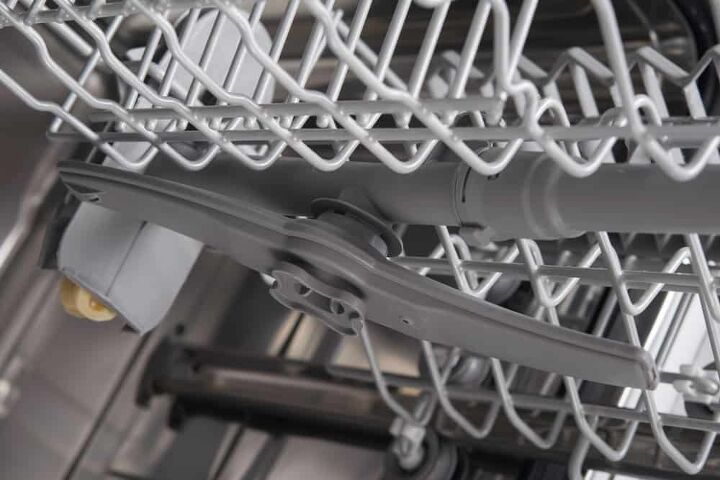
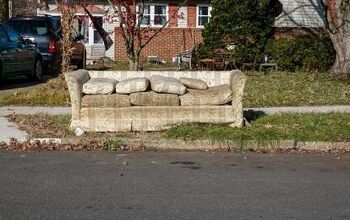





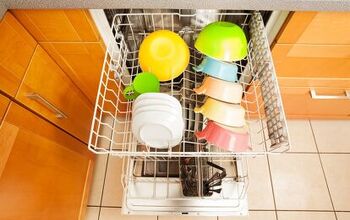
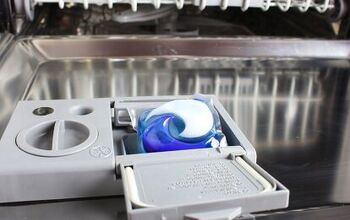
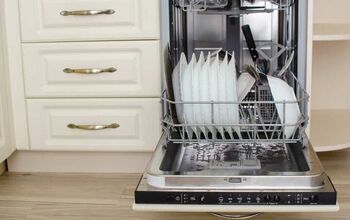
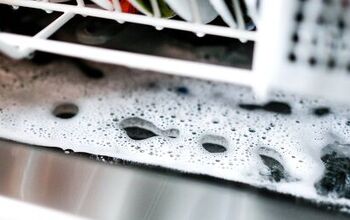
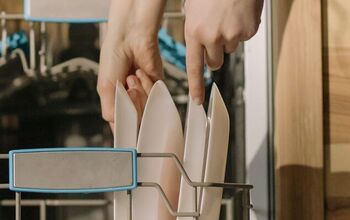
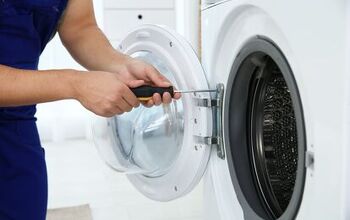

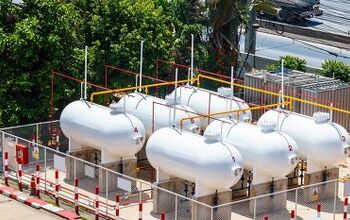



![12 Washing Machine Brands to Avoid [with Recall Data]](https://cdn-fastly.upgradedhome.com/media/2023/07/31/9075781/12-washing-machine-brands-to-avoid-with-recall-data.jpg?size=350x220)


